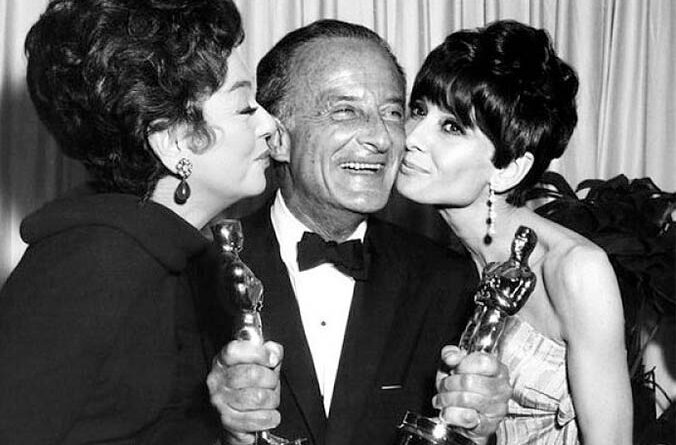Classic Hollywood: Fred Zinnemann

I once got an email from an 88-year-old man named George, praising an essay I’d written for the Washington Post. Coincidentally, I had read a piece George wrote for the Post, about living in post-war New York. I joked about being reincarnated from the ‘30s and ‘40s, citing my passion for classic films. To which George replied, “Then you’ve probably heard of my brother Fred.”
Most movie fans know directors like Ford, Capra, and Hitchcock. But when I mention Fred Zinnemann, the name doesn’t always register – until I start listing his credits: High Noon, From Here to Eternity, A Man for All Seasons, Oklahoma! Suddenly, their eyes light up. They may be unaware that his pictures earned 65 Oscar nominations, winning 25 (including four for Fred). They just know great stuff when they see it.
George and I became fast friends. He spoke of Fred the big brother, who—in a scene that could have come out of Fred’s movie Julia—sponsored George’s escape from Nazi-occupied Austria in 1938. He talked about Fred introducing George to his celebrity crush Lana Turner, and how Fred died a month shy of his 90th birthday, a milestone George hoped to reach (and did).
I knew the basics of Fred’s career: that he wasn’t pigeonhole-able, that his dramas typically had a documentary look and feel. I knew his best films tracked solitary heroes, caught in moral conflicts, whose characters define their destinies. I knew that Fred was notoriously selective about the assignments he took. His output was thinner than many Golden Era filmmakers (just over 20 features) but rich with critically acclaimed titles.
What’s more, Fred was an actor’s director, leading 19 of them (including Audrey Hepburn, Jane Fonda, Montgomery Clift, and Deborah Kerr) to Oscar-nominated performances, with seven getting the gold (Gary Cooper, Frank Sinatra, Donna Reed, Vanessa Redgrave, Jason Robards, Paul Scofield, child star Ivan Jandl). Fred also guided Clift, Marlon Brando, Rod Steiger, Shirley Jones, Julie Harris, and Meryl Streep in their screen debuts.
Born in Vienna in 1907, Fred graduated from law school, but persuaded his skeptical father to support his dream of making movies instead. Fred spent two years in Paris and Berlin, honing his craft and finding success shooting the sleeper, People on Sunday, written by fellow rookie Billy Wilder. In October of 1929, Fred sailed to New York, arriving on the day the stock market crashed!
Hopping a bus to Hollywood, Fred spent three years cranking out “B” pictures and two-reelers (his short subject, That Mothers Might Live, copped an Academy Award). In 1944, Fred scored a hit for MGM with the Spencer Tracy drama, The Seventh Cross. After the war, Fred returned to war-ravaged Europe to shoot The Search—and learn his parents had perished in the Holocaust.
Long before meeting George, I had heard a legendary story about his brother meeting with a hotshot studio executive. Clueless about Fred’s achievements, the young buck said, “So, tell me what you’ve done.” Fred dryly replied, “You first.” I wanted to believe it was true, but in his autobiography, Fred attributed the awesome burn to his pal Billy Wilder…I still love it!
Other stream-worthy Zinnemann films: Act of Violence, Teresa, The Men, The Member of the Wedding, A Hatful of Rain, The Nun’s Story, The Sundowners, The Day of the Jackal.
Classic Hollywood posts appear bimonthly on The Music Hall blog.
